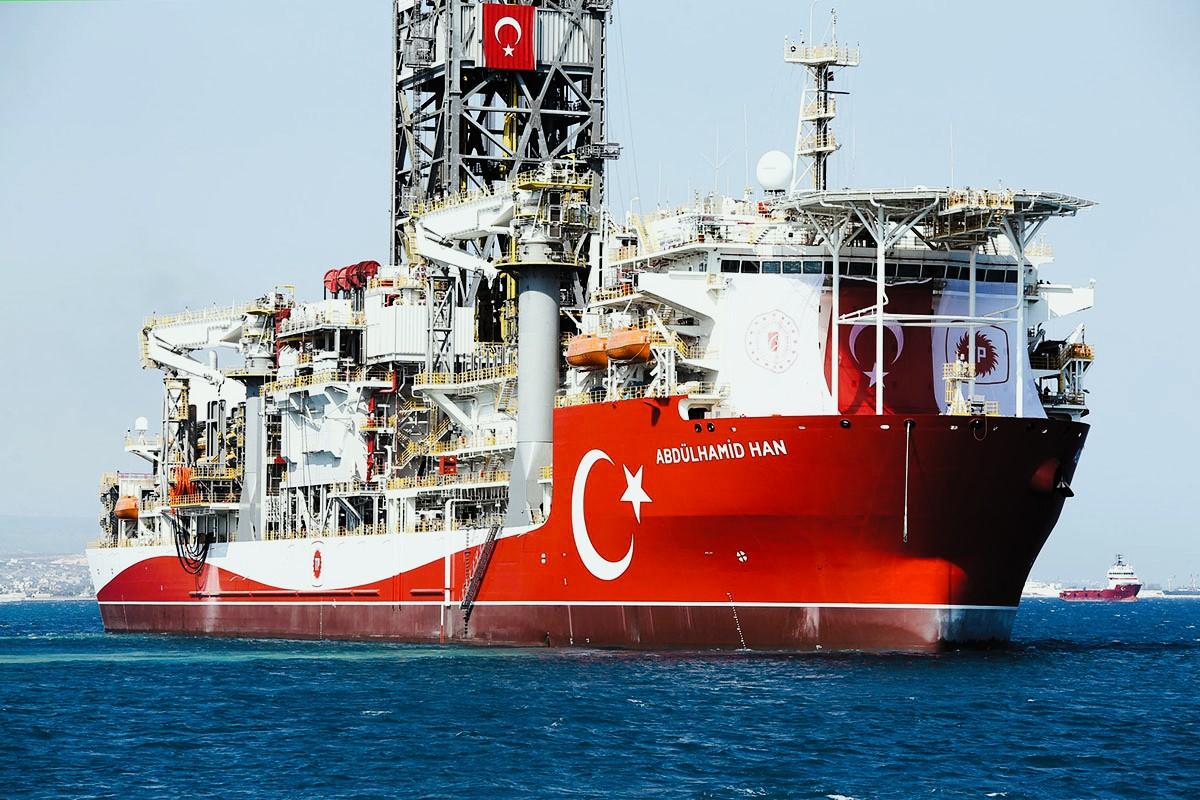Turkey uncovers major gas discovery in the Black Sea, boosting energy ambitions
In a significant development for the Eastern Mediterranean energy landscape, Turkey has announced a new offshore natural gas discovery in the Black Sea. The latest find, located at the Goktepe-3 well at a depth of 3,500 meters, is estimated at 75 billion cubic meters (bcm). According to President Recep Tayyip Erdoğan, this volume could meet the energy needs of Turkish households for approximately 3.5 years, with a market value exceeding USD 30 billion.
business power engineering maritime economy worldwide news19 may 2025 | 15:21 | Source: Gazeta Morska | Prepared by: Kamil Kusier | Print

fot. Statek wiertniczy Abdülhamid Han
This discovery marks another milestone in Turkey’s long-term strategy to reduce its reliance on imported energy. Over the past few years, Turkish offshore operations have intensified, with earlier discoveries such as the Sakarya field (initially 405 bcm, later revised to 652 bcm) and Çaycuma-1 (58 bcm) confirming the Black Sea’s growing resource potential.
Turkey is currently producing around 9.5 million cubic meters of gas per day from the Sakarya field, with plans to increase annual production to 15 bcm by 2026—enough to cover up to 30% of domestic demand, currently around 60 bcm per year.
Infrastructure and logistics remain critical
Despite the promising numbers, unlocking the full value of these reserves will require significant investment in subsea infrastructure and pipeline capacity. The Turkish Petroleum Corporation (TPAO), supported by the government, is ramping up development efforts. However, industry observers note the need for accelerated investment, potentially including international partnerships, to meet production targets on time.
Deepwater development presents its own set of challenges, from high operational costs to complex geological and hydrological conditions specific to the Black Sea basin.
Strategic and geopolitical significance
Beyond the economic benefits, Turkey’s energy discoveries are part of a broader geopolitical strategy. Ankara aims to transform the country into a regional energy hub—not only by supplying gas from its own fields but also by facilitating the transit of hydrocarbons from Central Asia and the Middle East to Europe. Domestically sourced gas is seen as a key tool to reduce dependence on Russian, Iranian, and Azerbaijani imports and to strengthen Turkey’s hand in diplomatic and economic negotiations.
Implications for the maritime and offshore sector
The expansion of Black Sea gas projects signals rising demand for offshore vessels, subsea engineering, seismic survey capabilities, and skilled maritime personnel. European—particularly Polish and Scandinavian—offshore companies may find new opportunities in Turkey’s energy drive, whether as technology providers or subcontractors for complex deepwater development.
Buy us a coffee, and we’ll invest in great maritime journalism! Support Gazeta Morska and help us sail forward – click here!
Kamil Kusier
redaktor naczelny
comments
Add the first comment
see also
NHV launches helicopter base in Gdańsk to support Baltic offshore wind sector
POLSCA S.A. officially launched as Polish ferry operators consolidate on the Baltic Sea
Robert Lewandowski becomes Sunreef Yachts ambassador, orders 80-foot power catamaran built in Poland
Poland’s nuclear project creates new opportunities for regional accommodation sector
ORLEN Neptun prepares service port for Baltic West Offshore Wind Farm
Poland strengthens nuclear workforce: PEJ partners with Poznań University of Technology
Grupa WB joins ASD. Strengthening Central and Eastern Europe’s voice in the European defence industry
Remontowa Shipbuilding to build hybrid passenger-car ferry for Torghatten Midt
Conrad C140 CO.ONE: construction progress*from Gdańsk
Offshore wind boosts energy job market. Demand for maritime and renewable specialists remains strong
ADVERTISEMENT
ADVERTISEMENT